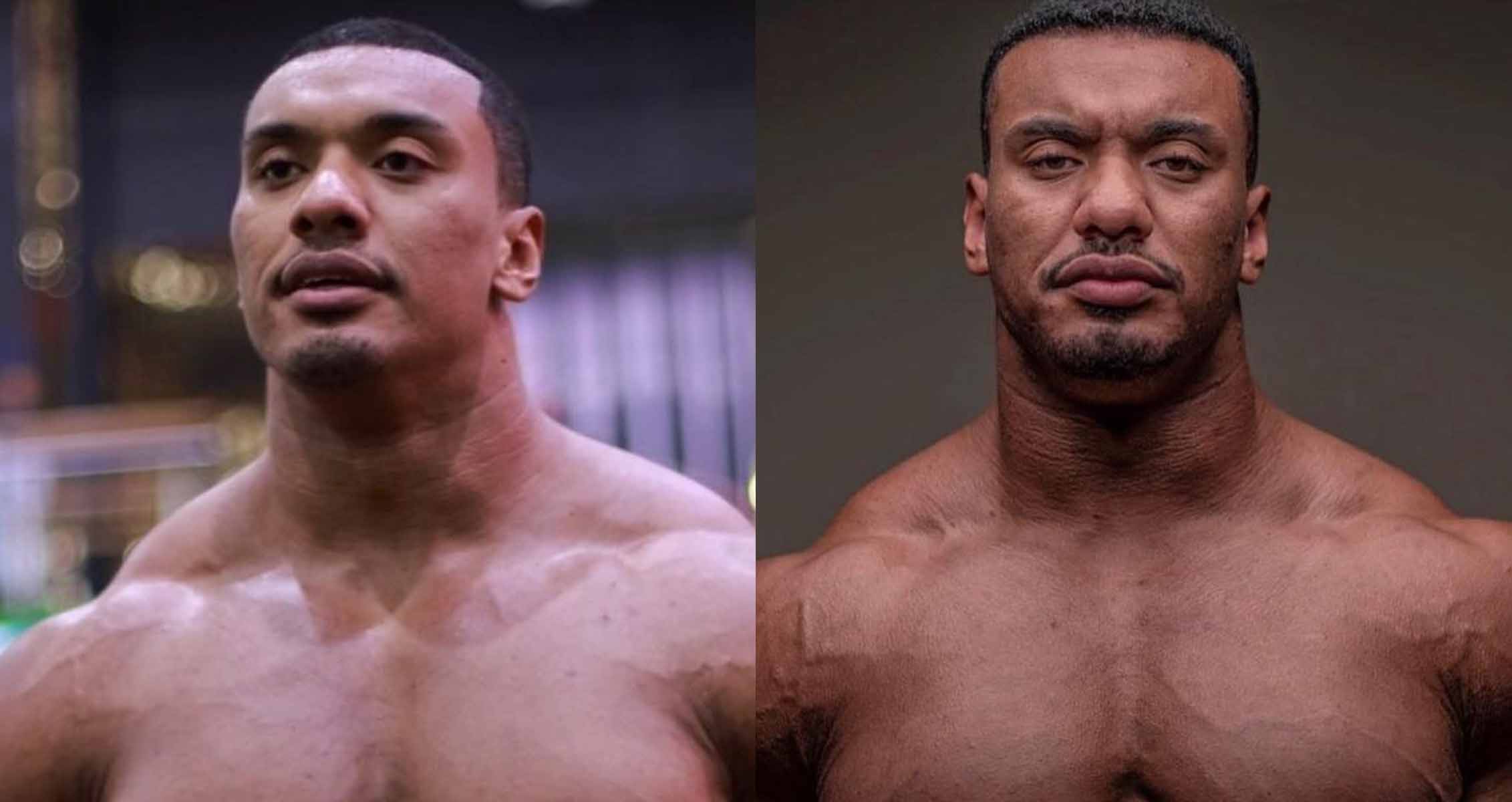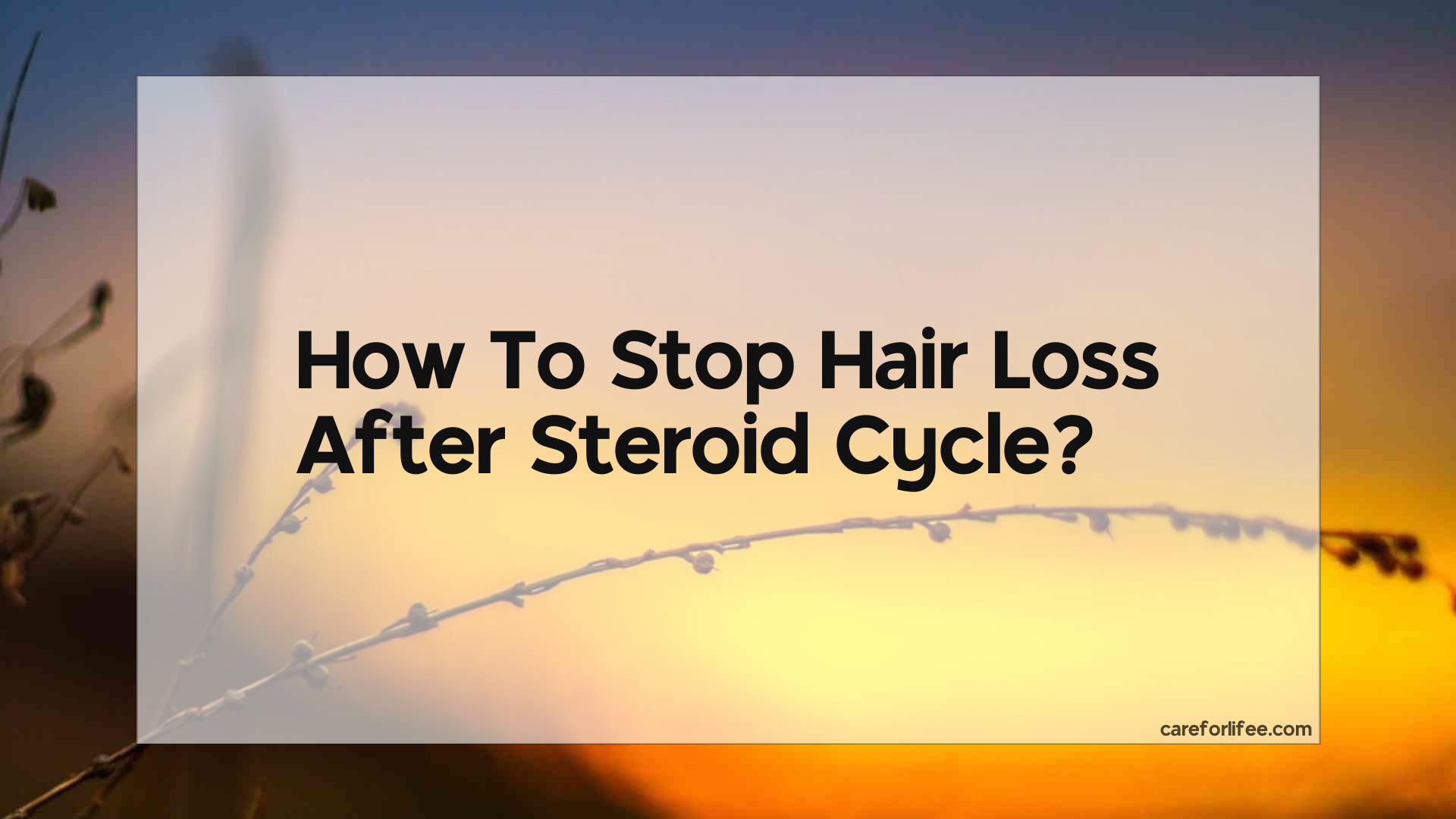How to stop hair loss after steroid cycle – Hair loss after a steroid cycle can be a distressing side effect, but understanding the causes and implementing effective strategies can help you regain your healthy hair. This guide will delve into the mechanisms behind steroid-induced hair loss, explore preventive measures, and provide post-cycle hair restoration options to help you overcome this challenge.
Steroids disrupt the normal hair growth cycle, leading to excessive hair shedding. However, by adopting lifestyle modifications, using topical treatments, and considering medical interventions, you can minimize hair loss during and after a steroid cycle. This guide will empower you with the knowledge and tools you need to maintain healthy hair throughout your fitness journey.
Impact of Steroid Use on Hair Loss
Steroid use, particularly anabolic-androgenic steroids (AAS), can significantly contribute to hair loss. These steroids mimic the effects of testosterone, a hormone that plays a role in hair growth and development. Understanding the mechanisms by which steroids affect hair follicles is crucial for mitigating hair loss during and after steroid cycles.
Mechanisms of Steroid-Induced Hair Loss, How to stop hair loss after steroid cycle
Steroids exert their effects on hair follicles through several mechanisms:
- Increased DHT Production:AAS increases the conversion of testosterone to dihydrotestosterone (DHT), a more potent androgen that binds to androgen receptors in hair follicles. DHT can shorten the hair growth cycle, leading to thinner and weaker hair.
- Inhibition of Hair Follicle Growth:Steroids can inhibit the growth phase of hair follicles, resulting in premature hair shedding and reduced hair density.
- Increased Scalp Inflammation:AAS can cause inflammation of the scalp, leading to hair follicle damage and hair loss.
Types of Steroids and Hair Loss
Different types of steroids have varying effects on hair follicles:
- Injectable Steroids:Injectable steroids, such as testosterone enanthate and nandrolone decanoate, are more likely to cause hair loss due to their higher androgenic activity.
- Oral Steroids:Oral steroids, such as Dianabol and Anavar, have a lower androgenic effect and are less likely to cause hair loss.
Understanding the Hair Growth Cycle

The hair growth cycle consists of three distinct phases: the anagen phase, the catagen phase, and the telogen phase.
The anagen phase is the active growth phase, during which the hair follicle produces a new hair shaft. The catagen phase is a transitional phase, during which the hair follicle shrinks and the hair shaft is released from the scalp.
The telogen phase is the resting phase, during which the hair follicle remains dormant.
Similarly, if you’re concerned about the health of your e-bike battery, there are several signs to watch out for. Check out this article for detailed insights on identifying a faulty e-bike battery.
Disruption of the Hair Growth Cycle by Steroids
Steroids can disrupt the normal hair growth cycle by:
- Shortening the anagen phase
- Lengthening the telogen phase
- Causing inflammation in the hair follicles
These disruptions can lead to hair loss, which can be temporary or permanent.
Methods to Prevent Hair Loss During Steroid Cycle
Preventing hair loss during a steroid cycle requires a multifaceted approach that addresses both internal and external factors. By implementing lifestyle modifications, incorporating topical treatments, and utilizing supplements, you can minimize the impact of steroids on your hair.
Lifestyle Modifications
- Maintain a Healthy Diet:Consume a balanced diet rich in fruits, vegetables, and whole grains. Ensure adequate protein intake to support hair growth.
- Engage in Regular Exercise:Exercise promotes blood flow to the scalp, delivering essential nutrients to hair follicles. Aim for at least 30 minutes of moderate-intensity exercise most days of the week.
- Manage Stress:Chronic stress can trigger hair loss. Engage in stress-reducing activities such as meditation, yoga, or spending time in nature.
Topical Treatments
- Minoxidil:A topical solution that stimulates hair growth. Apply it directly to the scalp twice daily.
- Finasteride:A prescription medication that blocks the production of dihydrotestosterone (DHT), a hormone that contributes to hair loss.
- Ketoconazole Shampoo:An antifungal shampoo that can reduce scalp inflammation and improve hair growth.
Supplements
- Biotin:A B vitamin essential for hair growth. Supplement with 2-5 mg daily.
- Iron:Iron deficiency can lead to hair loss. Ensure adequate iron intake through diet or supplementation.
- Zinc:Zinc plays a role in hair growth. Supplement with 15-30 mg daily.
Post-Cycle Hair Restoration
Discontinuing steroid use does not guarantee immediate hair restoration. Hair loss can persist for some time after the cycle ends. However, there are treatment options available to promote hair regrowth and restore hair density.
The effectiveness of post-cycle hair restoration depends on various factors, including the duration and dosage of steroid use, individual genetics, and the severity of hair loss. Some individuals may experience complete hair regrowth, while others may require ongoing treatment or additional interventions.
Medications
Medications such as minoxidil and finasteride are commonly used to treat hair loss after steroid cycles. These medications work by stimulating hair growth and inhibiting hair loss, respectively.
- Minoxidilis a topical medication applied directly to the scalp. It promotes hair growth by increasing blood flow to hair follicles.
- Finasterideis an oral medication that blocks the production of dihydrotestosterone (DHT), a hormone that contributes to hair loss.
Hair Transplantation
Hair transplantation is a surgical procedure that involves transplanting hair follicles from a donor area to the affected area. This technique can be effective in restoring hair growth in areas where hair loss is significant or permanent.
Hair transplantation is typically performed under local anesthesia. The surgeon removes hair follicles from the donor area, usually the back or sides of the scalp, and implants them into the recipient area. The transplanted hair follicles continue to grow and produce hair, providing a natural-looking result.
Nutritional Considerations
Healthy hair growth requires a balanced diet rich in essential nutrients. These include:
- Vitamins:Vitamin A, B vitamins (especially biotin), vitamin C, and vitamin E
- Minerals:Iron, zinc, copper, and selenium
- Antioxidants:Beta-carotene, lycopene, and vitamin E
Vitamins A, C, and E are crucial for hair follicle health and growth. Biotin is essential for keratin production, the protein that makes up hair. Minerals like iron, zinc, and copper are involved in hair growth and pigmentation. Antioxidants protect hair follicles from damage caused by free radicals.To support hair health, incorporate foods rich in these nutrients into your diet.
These include:
- Vitamin A:Liver, dairy products, eggs
- B vitamins:Whole grains, legumes, meat
- Vitamin C:Citrus fruits, leafy greens
- Vitamin E:Nuts, seeds, vegetable oils
- Iron:Red meat, seafood, beans
- Zinc:Oysters, meat, nuts
- Copper:Liver, shellfish, beans
- Selenium:Brazil nuts, fish, poultry
Lifestyle Habits
Lifestyle habits can significantly impact hair growth and contribute to hair loss. Understanding the effects of certain habits and adopting healthier alternatives can help preserve hair health during and after a steroid cycle.
-
Smoking
Smoking damages blood vessels, restricts blood flow to the scalp, and depletes essential nutrients for hair growth. Nicotine in cigarettes also increases oxidative stress, further harming hair follicles.
-
Alcohol Consumption
Excessive alcohol intake can lead to dehydration, nutrient deficiencies, and hormonal imbalances, all of which can negatively affect hair growth. Alcohol also impairs liver function, which is responsible for metabolizing hormones and toxins that can contribute to hair loss.
-
Excessive Styling
Overusing hair styling tools, such as blow dryers, straighteners, and curling irons, can damage hair shafts, leading to breakage and hair loss. Additionally, tight hairstyles, such as braids or ponytails, can put stress on hair follicles, causing them to weaken and shed.
Adopting healthy lifestyle habits can promote hair growth and reduce the risk of hair loss:
- Quit smoking or reduce smoking frequency.
- Limit alcohol consumption or avoid it altogether.
- Use hair styling tools sparingly and at low heat settings.
- Massage the scalp regularly to improve blood circulation.
- Get adequate sleep and manage stress levels.
- Follow a balanced diet rich in fruits, vegetables, whole grains, and lean protein.
Medical Conditions and Medications: How To Stop Hair Loss After Steroid Cycle
Hair loss can be a symptom of underlying medical conditions or medications. Understanding these factors is crucial for effective hair restoration.
Certain medical conditions, such as thyroid disorders, hormonal imbalances, and autoimmune diseases, can disrupt hair growth. Medications, including chemotherapy, anticoagulants, and antidepressants, may also cause hair loss as a side effect.
Curious about whether your aquarium tank is cycled without resorting to tests? Check out this guide for some helpful indicators. And if you’re wondering if your e-bike battery is on its last legs, here’s how to tell.
Potential Interactions
Steroids can interact with other medications, potentially exacerbating hair loss. For instance, anticoagulants like warfarin can increase the risk of bleeding, which may worsen hair loss. It’s essential to consult a healthcare professional to assess potential interactions and adjust medications accordingly.
If you’re wondering how to determine if your tank is cycled without a test, there are a few key indicators you can look for. Click here for more information.
Managing Hair Loss
Managing hair loss associated with medical conditions requires addressing the underlying cause. This may involve adjusting medications, treating underlying conditions, or using topical treatments. In some cases, hair loss may be permanent, and hair restoration options, such as hair transplantation, may be considered.
Emotional and Psychological Impact
Hair loss can have a significant emotional and psychological impact on individuals, leading to feelings of distress, anxiety, and low self-esteem. It can affect one’s sense of identity, body image, and overall well-being.Individuals experiencing hair loss may feel self-conscious and avoid social situations, fearing judgment or ridicule.
They may withdraw from activities they once enjoyed and experience a decline in their quality of life. In some cases, hair loss can trigger depression and other mental health issues.
Coping Mechanisms and Support
Coping with the emotional and psychological effects of hair loss requires a multifaceted approach. Therapy, support groups, and online communities can provide individuals with a safe and supportive environment to share their experiences, connect with others, and learn coping strategies.Self-care practices such as exercise, meditation, and spending time in nature can help reduce stress and improve overall well-being.
It’s also important to seek professional help if needed, as a therapist can provide personalized guidance and support.
Closing Notes

Regaining healthy hair after a steroid cycle requires a multifaceted approach that addresses the underlying causes and promotes hair growth. By understanding the impact of steroids on hair follicles, implementing preventive measures, and exploring post-cycle treatment options, you can effectively combat hair loss and restore your hair’s vitality.
Remember, consistency and patience are key to achieving long-lasting results. Embrace the strategies Artikeld in this guide, and you will be well on your way to restoring your healthy, luscious locks.
Commonly Asked Questions
Can hair loss from steroids be permanent?
In most cases, hair loss from steroids is temporary and will resolve once steroid use is discontinued. However, prolonged or high-dose steroid use can lead to permanent hair loss.
How long does it take for hair to grow back after stopping steroids?
Hair regrowth typically begins within a few months after discontinuing steroid use. However, the rate of hair growth varies from person to person and depends on factors such as age, genetics, and overall health.
What are the best supplements for hair loss after steroids?
Supplements that support hair growth, such as biotin, collagen, and vitamin D, can be beneficial for post-cycle hair restoration. Consult with a healthcare professional before taking any supplements.
